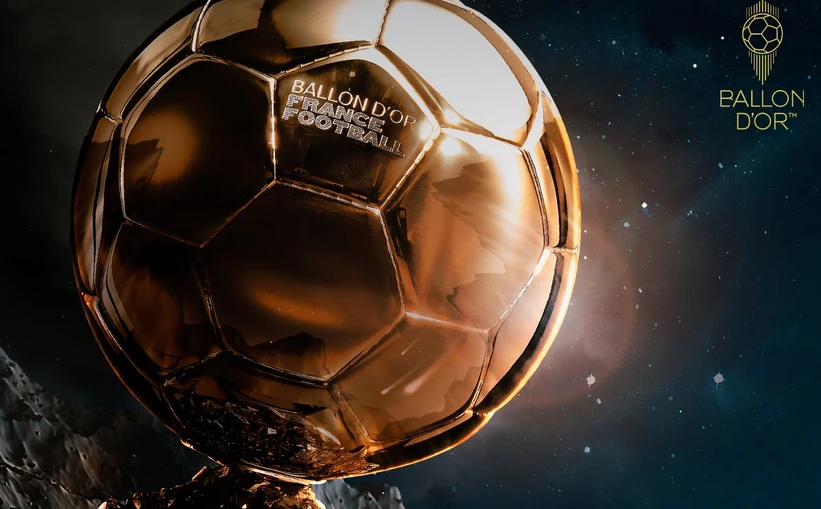In the global spectacle of football, few individual accolades spark as much passion, rigorous analysis, and outright contention as the Ballon d`Or. Touted as the ultimate individual recognition within a fundamentally collective sport, this coveted golden orb invariably ignites a worldwide debate that transcends the boundaries of club loyalties and national pride. But what precisely defines the “best” player in a given season, and why does this conversation almost always lead to such spirited, sometimes even acrimonious, arguments?
The Irresistible Lure of the Lone Star
Administered by French news magazine France Football since 1956, the Ballon d`Or stands as a preeminent symbol of individual footballing excellence. It is designed to honor the player deemed to have delivered the most outstanding performance over the preceding year. For the athletes themselves, winning it represents the pinnacle of personal achievement, a profound validation of their talent, relentless dedication, and countless hours spent honing their craft. For fans, it presents an annual opportunity to not only celebrate their cherished heroes but, perhaps more enjoyably, to engage in vociferous debates about who was unfairly overlooked or, conversely, undeservedly crowned.
The selection process, which involves a distinguished panel of journalists from leading football nations, aims to impart a veneer of objectivity. Yet, beneath this meticulously structured methodology lies an inherently subjective challenge: how does one definitively compare the diverse contributions of, for instance, a prolific goal-scorer to an orchestrating midfield maestro, or a commanding central defender? Each role demands a unique skill set, and their impact, while equally vital, is seldom directly comparable on a statistical ledger.
The Eternal Tug-of-War: Individual Brilliance Versus Collective Glory
At the very core of every Ballon d`Or discussion lies a fundamental philosophical quandary: should the award primarily reward a player`s raw statistical output and individual moments of sublime genius, or should it predominantly prioritize their indispensable contribution to their team`s most significant triumphs? This dichotomy frequently generates a fascinating and often frustrating tension.
Consider a typical scenario: a forward consistently shatters scoring records, delivering an unprecedented volume of goals and assists through sheer individual brilliance, yet their team, despite these heroics, falls short of securing major silverware. Now, contrast this with another player who, while not producing “eye-popping” individual statistics, acts as the undisputed tactical linchpin of a side that clinches, say, the UEFA Champions League and a dominant domestic league title. Both cases present a compelling argument for individual recognition, but which individual truly embodies “the best” when the dust settles?
Historically, demonstrable success in elite competitions—particularly the Champions League or major international tournaments such as the European Championships or the FIFA World Cup—often appears to tip the scales. Trophies offer tangible proof of impact, a clear and undeniable narrative of collective victory. However, a counter-argument posits that this approach risks overlooking the sheer, undeniable brilliance of an individual who might be single-handedly elevating a less dominant side, consistently performing at an elite level despite their team`s collective limitations. The debate often boils down to whether the award is intended for the most effective player within a winning context, or simply the most outstanding individual performer, irrespective of their team`s ultimate fate. It`s akin to the classic “Russell Westbrook (stats) versus Kawhi Leonard (championships)” dilemma, but artfully transposed onto the intricate tapestry of the football pitch.
The Human Element: More Art Than Exact Science
The inherent subjectivity embedded within the Ballon d`Or voting process is, perhaps, both its greatest charm and its most persistent source of frustration. Unlike a precisely timed sprint race or a measurable weightlifting competition, there exists no objective metric that definitively crowns the winner. The panel of journalists, entrusted with this weighty decision, inevitably brings their own unique perspectives, their personal priorities, and, it must be acknowledged, their unavoidable biases to the deliberation table.
One voter might place paramount value on a striker`s consistent, prolific goal-scoring prowess, viewing a tally of 30+ goals and 20+ assists as an irrefutable case for victory. Another might prioritize a defender`s crucial interceptions, their rock-solid presence, and their inspiring leadership within a stingy backline that contributed to a record number of clean sheets. Still others might lean towards the player who delivered the most defining, clutch moments in high-stakes finals. This inherent divergence of criteria transforms the entire voting process from a precise scientific calculation into an interpretive art form, where prevailing narratives, public perception, and even a touch of recency bias can subtly yet profoundly influence the ultimate outcomes.
Moreover, the sheer volume of elite talent distributed across global football leagues means that truly deserving players are, regrettably, inevitably omitted from shortlists or ranked lower than their exceptional performances might otherwise suggest. The recurring “split vote” phenomenon, where multiple exceptional players from the same dominant team inadvertently dilute each other`s chances, adds yet another intricate layer of complexity to the annual discussion, ensuring that the arguments are never truly resolved.
Beyond the Podium: The Enduring Legacy
Despite the perennial controversies, the impassioned debates, and the entirely valid critiques regarding its methodology, the Ballon d`Or remains an extraordinarily powerful cultural touchstone in the world of football. It compels a global conversation about individual excellence, highlights the myriad different facets of the beautiful game, and provides a singular platform for players to etch their names into the indelible annals of sporting history. Whether one champions the prolific goal-scorer, the tactical genius, or the revered trophy collector, the debate itself is a vibrant testament to the award`s profound significance.
As each football season unfolds, new narratives invariably emerge, new stars inevitably rise to prominence, and new debates are unequivocally sparked. And as long as football continues to be played with such passion and skill, the annual quest to identify and celebrate its brightest individual talents will continue to captivate fans worldwide, thereby ensuring the Golden Ball retains its enigmatic, yet utterly irresistible, allure.

